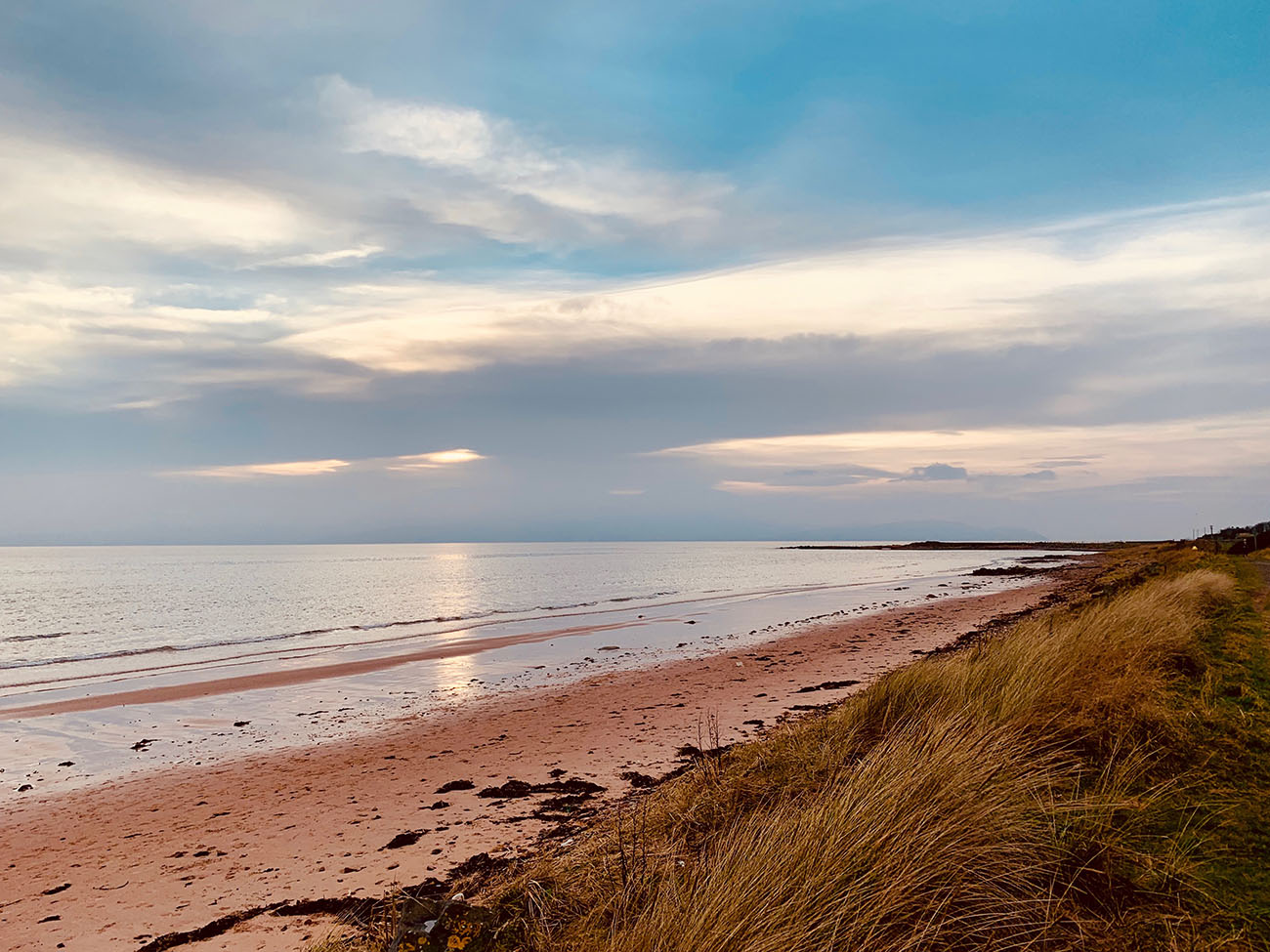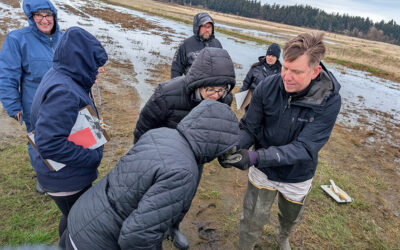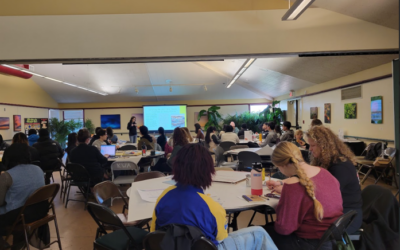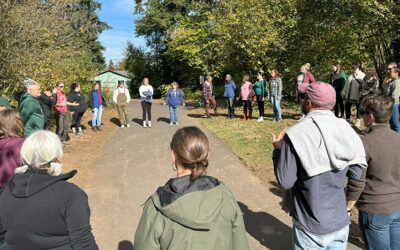During the week of October 12th, 2020, 25 teachers from across the South Sound and the Olympic Peninsula attended a three-day online workshop, Solutions Oriented Learning Storylines: Coastal Hazards, with Pacific Education Institute’s FieldSTEM Coordinators Julie Tennis and Hattie Osborne along with local community partners.
To begin the workshop series, Hattie acknowledged the land that she resides on and gave time for the participants to research the lands that they currently occupy. Tania Eison, a Quinault Tribal member, and Quinault Legislative aide shared her perspective on climate change, sea level rise in Taholah and her experiences as a young tribal member. An asynchronous activity connected the session’s concepts by having participants research their local tribal nations and start to think of actionable steps to incorporate tribal history and perspective in their classrooms.
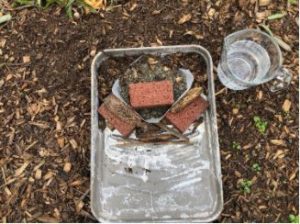
A model of a barrier that could be built to reduce coastal flooding. Model and picture by Monica Lloyd.
The second session introduced participants to Dr. Ian Miller, a Coastal Hazards Specialist from Washington Sea Grant who discussed the impacts of coastal hazards along the Washington coast and Puget Sound. Dr. Miller gave an overview of adaptation and mitigation efforts for sea level rise, coastal erosion, and coastal flooding. After hearing from Dr. Miller, participants shared their tribal nation research from their asynchronous assignment in small groups. Multiple participants shared that learning about local Indigenous people was a new opportunity for them and they will carry this into their classrooms.
Finally, educators learned more about teaching science by discussing three-dimensional formative assessment strategies and being introduced to PEI’s Solutions Oriented Learning Storylines: Coastal Hazards to teach climate science in developmentally appropriate, locally relevant ways. After the workshop, a participant shared this sentiment, “I am excited about the activities presented. I thought they were well laid out and seemed easy to use.”
PEI will be facilitating additional Coastal Hazards workshops in November 2020 and January 2021.

